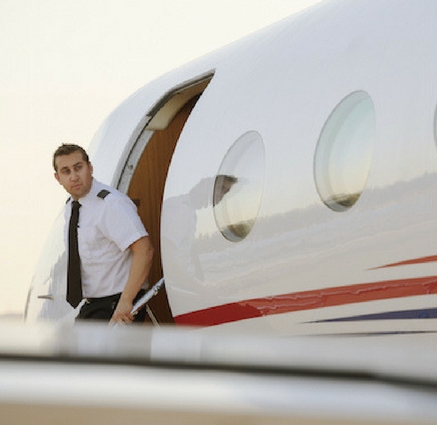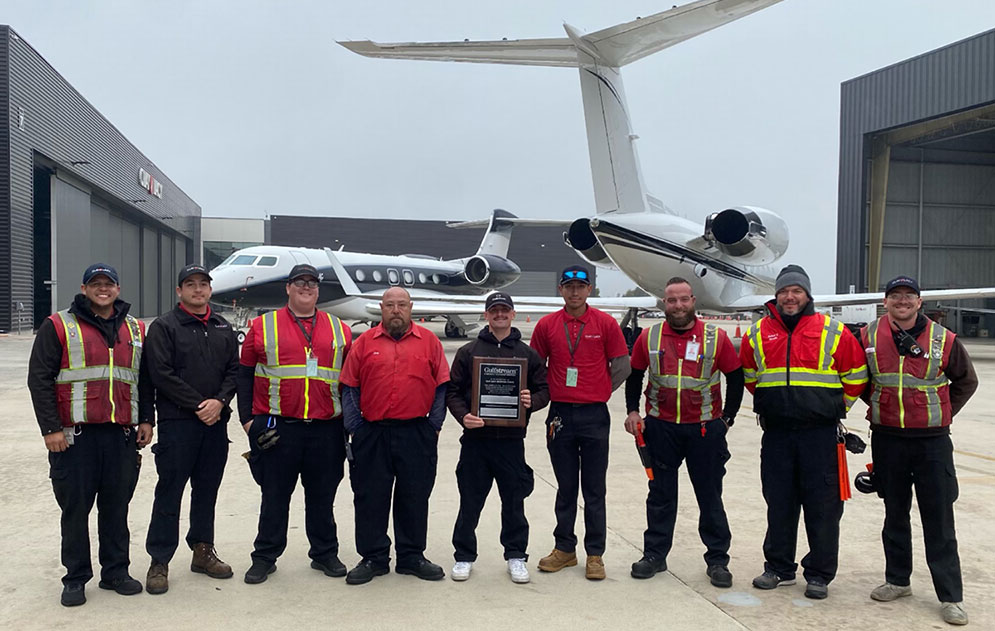
The Pilot Shortage, Part 2: What Aircraft Owners Can Do To Attract And Retain Quality Pilots
Experienced and qualified pilots are a valuable and necessary asset in business aviation; now more than ever before. Over the next two decades, private jet operators will be challenged to quickly fill vacant crew positions; which could significantly impact aircraft owners and private jet charter.

The Mismatch
Economic prosperity, increased travel demands, mandatory retirement, and various barriers to entry into the career as a professional pilot have contributed to the pending pilot shortage edging close on the horizon. Aircraft owners need be aware of the inequality of supply versus demand for professional pilots. The mismatch could have a significant effect on operating budgets, aircraft crewing, and private jet travel.
A Pilot’s Market
As the pool of qualified pilot candidates leans, the expenses associated with private jet travel and aircraft ownership will increase. “The topic of pilot salaries is a top discussion point from aircraft owners,” says Preston Williamson, Assistant Director of Operations for Clay Lacy Aviation. “We participate in annual salary surveys and maintain open lines of communication with our pilots and peers in the industry in order to provide sound advice to our clients.”
In the current market, professional pilots have options regarding which aviation company to join. Some corporate pilots— interested in quality-of-life, stability, and compensation growth— are leaving business aviation and joining commercial airlines like Southwest, United, and Alaska. While commercial airlines are getting more and more aggressive in their recruiting tactics, data indicates that there are just not enough pilot candidates available industry-wide.
Fostering Quality
At Clay Lacy Aviation, the attention to hiring quality professionals— highly skilled aviators, with the desire and ability to communicate effectively with aircraft owners and other high net worth travelers— will remain the same, regardless of the pilot shortage. What will change are the salaries such candidates garner and the amount of time it takes to find professional pilots with the necessary experience and abilities. “When hiring pilots, we maintain a strict standard of safety, competency, and professionalism,” says Preston.
Quality-of-Life
Compensation is always important, but for aircraft owners, the solution to the pilot shortage may involve more than throwing money at the problem. A pilot’s quality-of-life is profoundly influenced by a variety of factors beyond dollars and cents. According to Tom Wachowski, founder, and host of ‘Private Jet Podcast,‘ there are a few reasons why pilots remain happy in their business aviation careers. One point mentioned is the ‘direction,’ or management landscape of a private jet operation. “Flight attendants, maintenance technicians, and pilots want to be confident in the leadership at a company,” Tom says in his podcast.
Direction & Leadership
Clay Lacy Aviation has historically seen longevity of employment in its pilot group. “One of the major benefits that airlines offer over private aviation— which is inherently fluid— is stability. Pilots hope to find a place to ‘hang their hat,’ if you will,” says Preston. “At Clay Lacy, we work extremely hard to provide that same level of employment stability. Most of our pilots have flown for Clay Lacy for five or more years, and some for as long at twenty-five years.”
The longevity of professional pilots translates into greater continuity for aircraft owners and charter clients; resulting in a more efficient and safe operation. Preston states that, “Providing continuity of employment is one way we offer the element of ‘quality-of-life’ that most pilots seek as they look to their future.”
Motivating Aviators
To many pilots, flying is not a drug, but oxygen— essential to their existence. The profession is as natural and necessary to a pilot’s life as is the act of breathing. For the future growth of aviation— and continued increase of private jet travel— it’s essential to educate and motivate future aviators. “Flying is the closest thing to freedom that I have ever found,” says Rachelle Spector, founder of I HART Flying Foundation; an organization that inspires women to fly professionally. “Someone gave me the gift of flight, and that changed my life. Sharing that experience for others is essential.”
The Future Of Business Aviation
In the future, aircraft owners may experience higher costs due to the lower number of qualified pilots. Regardless, the competition for the most sought after jobs— with the best aircraft owners and charter companies— will remain stiff. Ralph Salisbury, a professional Gulfstream G450/G550 pilot with Clay Lacy for many years says, “Hands-down, there is nothing that I would rather be doing than flying.”
How does Clay Lacy Aviation choose the most skilled and experienced pilots for its aircrafts? Find out here.
Additionally, flight scholarship opportunities are available to assist motivated individuals with an interest and aptitude for aviation. Currently, Clay Lacy supports a number of scholarships for aspiring professional aviators.


